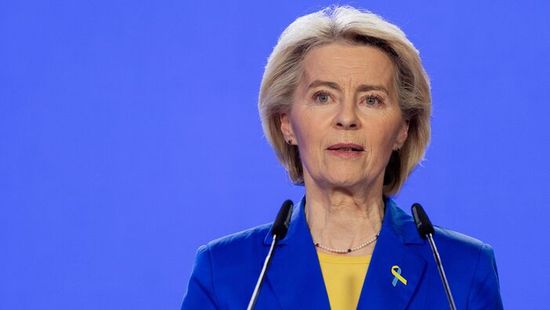Orbán móresre tanította Von der Leyent: megmutatta neki, mire képesek a magyarok (VIDEÓ)

„A szuvereintás jobb üzlet” – jelentette ki a Nézőpont Intézet vezetője.

I think that the Republicans up on the Hill care about this country, but they have a very ideologically rigid view of how to move this country forward.
„Let's talk about the campaign. Given all we've heard about and learned during the GOP primaries, what's your take on the state of the Republican Party, and what do you think they stand for?
First of all, I think it's important to distinguish between Republican politicians and people around the country who consider themselves Republicans. I don't think there's been a huge change in the country. If you talk to a lot of Republicans, they'd like to see us balance the budget, but in a balanced way. A lot of them are concerned about jobs and economic growth and favor market-based solutions, but they don't think we should be getting rid of every regulation on the books. There are a lot of Republican voters out there who are frustrated with Wall Street and think that they acted irresponsibly and should be held to account, so they don't want to roll back regulations on Wall Street.

But what's happened, I think, in the Republican caucus in Congress, and what clearly happened with respect to Republican candidates, was a shift to an agenda that is far out of the mainstream – and, in fact, is contrary to a lot of Republican precepts. I said recently that Ronald Reagan couldn't get through a Republican primary today, and I genuinely think that's true. You have every candidate onstage during one of the primary debates rejecting a deficit-reduction plan that involved $10 in cuts for every $1 of revenue increases. You have a Republican front-runner who rejects the Dream Act, which would help young people who, through no fault of their own, are undocumented, but who have, for all intents and purposes, been raised as Americans. You've got a Republican Congress whose centerpiece, when it comes to economic development, is getting rid of the Environmental Protection Agency.
Doesn't all of that kind of talk and behavior during the primaries define the party and what they stand for?
I think it's fair to say that this has become the way that the Republican political class and activists define themselves. Think about John McCain, who obviously I have profound differences with. Here's a guy who not only believed in climate change, but co-sponsored a cap-and-trade bill that got 43 votes in the Senate just a few years ago, somebody who thought banning torture was the right thing to do, somebody who co-sponsored immigration reform with Ted Kennedy. That's the most recent Republican candidate, and that gives you some sense of how profoundly that party has shifted.(...)
In working with the Republicans in this term, it seems clear that the traditional rules of give-and-take politics have changed – that the Republicans have been playing a »lose-lose« game with you. What's your relationship with the GOP leadership at this point? A little frosty?
It's not frosty. This isn't personal. When John Boehner and I sit down, I enjoy a conversation with him. I don't think he's a bad person. I think he's patriotic. I think that the Republicans up on the Hill care about this country, but they have a very ideologically rigid view of how to move this country forward, and a lot of how they approach issues is defined by »Will this help us defeat the president?« as opposed to »Will this move the country forward?«”